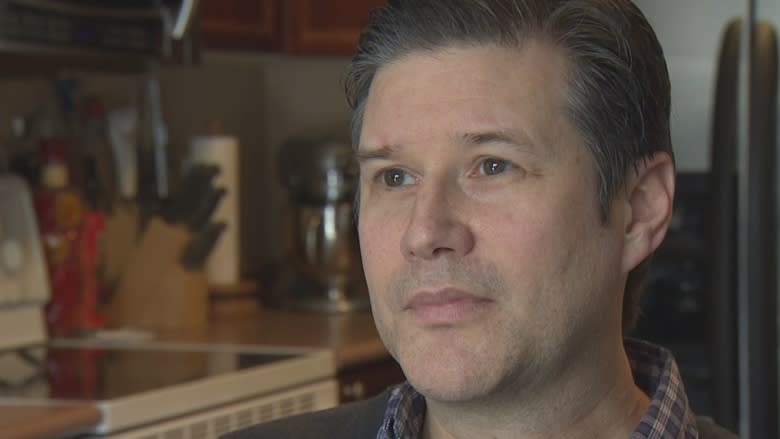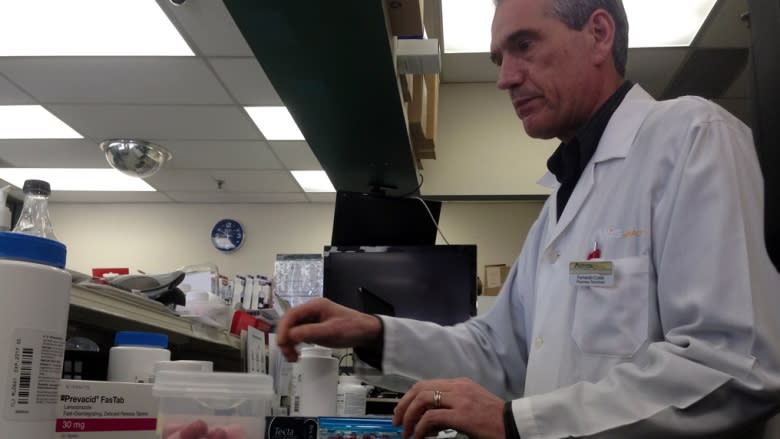Proton pump inhibitors for heartburn point to overmedication
Millions of Canadians are taking a prescription drug for heartburn long term but many of them don't need it, exposing them to a growing list of side-effects, say doctors who work with patients on discontinuing the drugs.
The drugs, called proton pump inhibitors (PPIs), include omeprazole (Losec), esomeprazole (Nexium), lansoprazole (Prevacid) and the over-the-counter medication Olex.
PPIs work by lowering the amount of acid produced by the stomach.
Health Canada and the U.S. Food and Drug Administration have warned people to take them for the shortest period possible, namely a few weeks, and only for serious acid reflux, ulcers or stomach bleeding.
Earlier this month, JAMA Internal Medicine published a study and editorial on the adverse events associated with PPIs.
For instance, their long-term use have been linked to increased rates of:
- Fractures.
Decreased bone density or strength.
- Pneumonia.
- Increased rates of C. difficile.
- Low magnesium levels.
- Chronic kidney disease.
"There are studies showing about 40 per cent of patients don't have an evidence-based reason to be taking a proton pump inhibitor and that a lot of patients haven't tried other alternative therapies such as lifestyle modifications or medications that aren't as strong, or ones that have fewer side-effects," said Dr. Emily McDonald, an internal medicine specialist at McGill University Health Centre in Montreal.
PPIs were heavily advertised to consumers and doctors, and because they are highly effective and perceived to be safe, they were widely prescribed, McDonald said.
Dr. Kimberly Wintemute is a co-leader in Choosing Wisely Canada's family medicine project, which includes discontinuing or tapering people off PPIs when appropriate.
Both doctors recommended strategies to prevent heartburn, before drugs are used, that include:
- Avoiding acidic and spicy foods, mint, smoking, chocolate.
- Decreasing alcohol consumption.
- Sleeping with the head of the bed slightly raised and not lie down right after a big meal.
- Using gentler medications such as Tums and Rolaids or histamine-2 receptor blockers before "pulling out the big guns" of proton pump inhibitors.
"There is always a pull to do the fastest thing, but the fastest thing in medicine isn't always the wisest thing in medicine," said Wintemute.
At the North York Family Health clinic, Wintemute and her colleagues are flagging electronic charts of patients who've been on PPIs for 12 months. The next time such a patient comes in, they have a conversation about the risks of being on it long term and whether it's a good time to taper or switch.
"We are giving them guidance so you know if you stop your PPI, you will probably have some rebound burning in the ensuing few weeks, and here is how we can deal with that."
Anyone who has had gastrointestinal bleeding, severe inflammation in the esophagus spotted by a scope, or precancerous changes in the esophagus needs to stay on PPIs, Wintemute said.
The esophagus is a tube that connects the throat and stomach.
Paul Love, 45, of Whitby, Ont., took a PPI prescribed for acid reflux — the backward flow of stomach acid into the esophagus — for several years. His doctor tried some other medications first.
"It's kind of like a volcano in your chest. It just rises up and it's painful, it's uncomfortable. I just felt I needed relief."
He's been suffering for about 15 years.
Once Love started taking the PPI regularly, he felt like he no longer had acid reflux and decided to try to solve it naturally by improving his diet, such as avoiding chocolate and eating more fruits and vegetables.
"I think maybe in our culture there's a tendency to overmedicate situations," said Love, who's been trying to stop the drugs for about two weeks.
For flare-ups, he now turns to a glass of milk and piece of bread. "It's just like smothering a fire."



